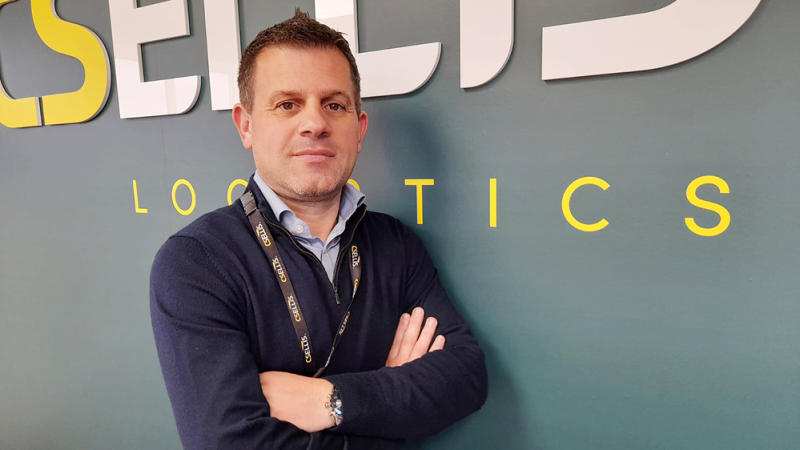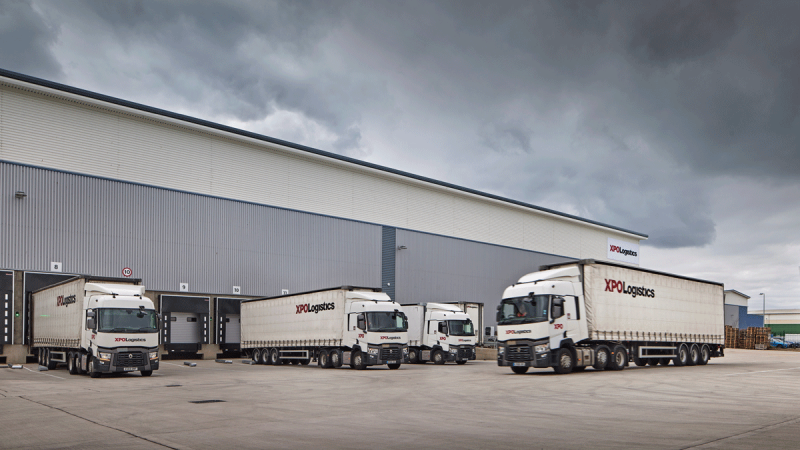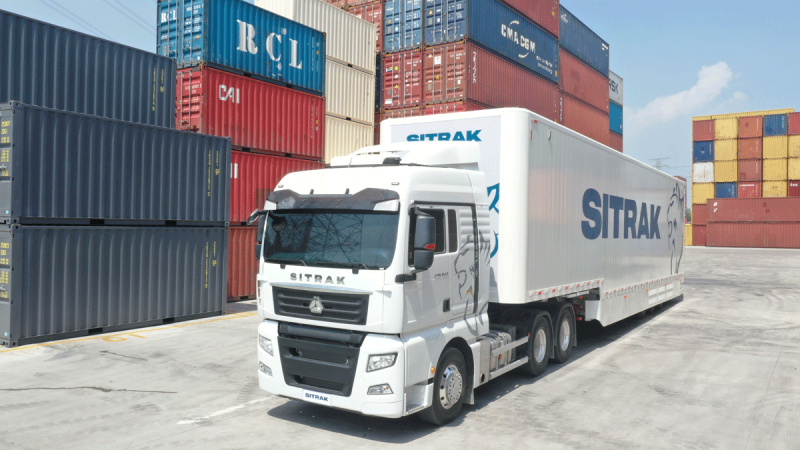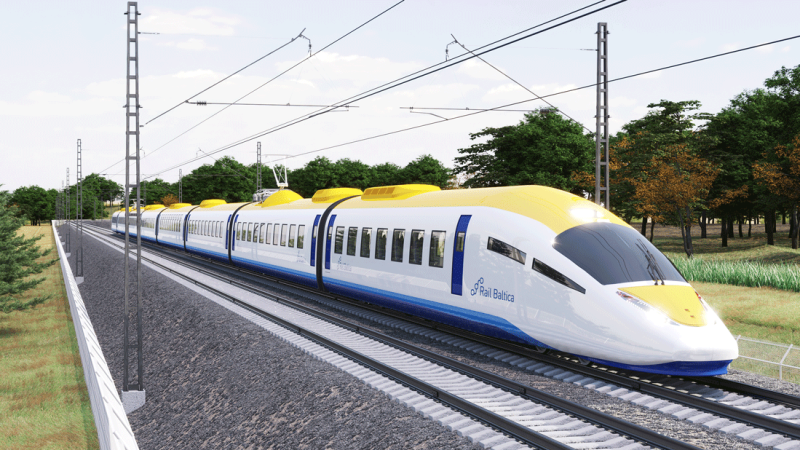Founded in 1946 as a Belgian manufacturer of professional radio systems, Televic has grown into an international leader in high-end communication systems across many different markets. The company operates with four business units: conference, education, health care and rail. We spoke to Alexander Biron von Curland, the general manager of Televic GSP, the business unit with over 35 years of experience in the design, production, and maintenance of products and solutions for the rail industry, developed in close cooperation with customers.
“All four business units are connected by the same values, which make the company very agile, and which also attracted me to join the business,” says Biron von Curland, who assumed his role only six months ago, coming from one of the company’s major customers, Siemens.
He explained that the four specific values are central to Televic’s success and guide the company and its employees each and every day: sustainability – being a reliable, long-term partner; innovation – always ahead of technological development; agility – anticipating market changes; and no-nonsense – trusted experts across its market, focusing on the core business, not on shiny marketing.
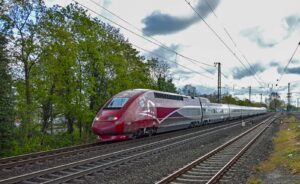 The Rail Business
The Rail Business
Televic Rail, operating under the brand name of Televic GSP, has been a key part of Televic for a long time. The company offers two portfolio categories. The major category covers passenger information systems and includes visual information (from information about the next stops, real-time data about destinations, and schedule changes, to digital signage and entertainment), as well as audio information.
The latter includes TRACS, the company’s latest generation of audio communication systems, consisting of emergency and alarm devices, audio control units, IP amplifiers, as well as peripheral devices such as microphones, loudspeakers, handsets, and hearing aid loops. The company’s offering includes all the networks behind that, including the software that manages all the systems.
The second portfolio category covers mechatronics designed for condition-based maintenance of train bogies, critical train components, that help enhance safety, reduce train operating costs and improve fleet reliability.
Global Market Leader
The last decade has been a period of significant growth for the company – in 2015, a joint venture was set up in China, followed in 2016 by the opening of Televic’s first plant in the US. In 2017, a new office was opened in Bulgaria to support Televic’s large Bulgarian manufacturing plant.
Biron von Curland explains that the company reached a significant milestone in 2019 when it acquired one of its competitors, GSP Sprachtechnologie, a Berlin-based manufacturer of passenger information systems for trains, trams and metros. This has strengthened Televic Rail’s position as a market leader for passenger information systems and introduced the joint brand name Televic GSP.
“GSP had a comparable portfolio but complementary markets for historical reasons, with a focus on central and eastern Europe, while Televic Rail had invested more in western Europe and North America. Combining the two companies and their competencies, Televic GSP has become a global market leader in its field.”
When asked what has helped the company to achieve such a strong position, he says: “We are second to none with our software functionalities. We are also very reliable. Ultimately, we are supplying to train builders who supply to operators. Train operators work under long-term contracts which carry many risks. Therefore, they don’t want any difficulties, they greatly value reliability. That is something that we can provide.”
“Also, our production facility in the US is a strong competitive advantage. Under the ‘Buy America Act’, many of our customers need to purchase locally in the US market and again, we can supply local products and services. Our market-leading, complementary portfolio, and the breadth of expertise, is also something that I believe none of our competitors have.”
“Last but not least, our research projects are focused on developing technologies (such as speech-to-text, digital fallback, etc.) to provide more accessible passenger information. These technologies can help, for example, those with auditive or visual problems receive the necessary information to travel comfortably and safely.”
Proud achievements
The list of Televic GSP’s projects successfully completed around the globe is long and varied. Biron von Curland highlights a recent contract for train information systems for Egypt, a project he knows very well from his previous role at Siemens.
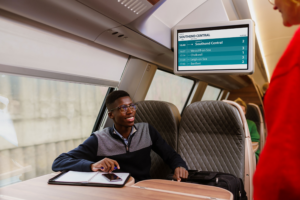 “Egypt is today investing heavily in rail, aiming to develop a high-speed network, but also commuter rail and the freight network. It is extremely positive to see a country that hadn’t invested in rail for decades moving in that direction. This shows rail represents a sustainable future for transportation also in less developed markets.”
“Egypt is today investing heavily in rail, aiming to develop a high-speed network, but also commuter rail and the freight network. It is extremely positive to see a country that hadn’t invested in rail for decades moving in that direction. This shows rail represents a sustainable future for transportation also in less developed markets.”
Customer projects aside, Televic GSP has scored highly in other areas. The company recently collected an award in Belgium for being a ‘Great Place to Work’, assessed by an independent agency measuring employee satisfaction levels. “We are pleased to be recognised as an attractive employer and this recognition is extremely important to us,” affirms Biron von Curland.
He also highlights the successful merger with GSP, an impressive task achieved during the global pandemic. “Managing mergers during a lockdown is as tough as it can get. We are still a few months away from going live with the joint ERP system, but overall, given the circumstances, the challenge has been handled extremely successfully.”
The upcoming sector
He affirms that the company is also handling the other big challenge – talent shortages, particularly in the software area, and is moving on with its plans for the future. Investment in R&D is continuous, but the company is also expanding its production capacity.
Going forward, Biron von Curland will focus on the priorities he defined when assuming the General Manager role: portfolio, employees, and customers. “Following the merger, we now have a joint portfolio, the best of both worlds, and we will continue to enhance our offering, specifically on the software side. I will also push for greater employee engagement as well as improved customer satisfaction. In our industry, we have a limited number of customers, and losing any would mean for us significant market shrinkage.”
In conclusion, he highlights the importance of the rail industry and the purposefulness of making it thrive. “I truly love this industry, my job, my team. For me, the rail industry is a tremendously positive sector – ecologically friendly, the most sustainable, connecting people. If anybody is searching for a purpose, our industry is the place to be. I believe we as a society should get our act together to take the opportunity to connect people in a sustainable manner.”


